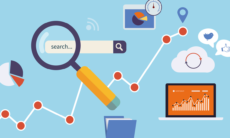This article, authored by our Member Consultant Kelley Haggert, continues a special series titled “Creating Resiliency During the COVID-19 Crisis.”
This series will feature articles, podcasts and additional resources from our Consultants Collective member consultants, advisors and coaches, whose experience and expertise includes risk and change management, Asia, China, offshoring, leading distributed global teams, managing crises and internal communications, deploying and managing online collaboration tools that enable people to work together virtually, developing new models, as well as expertise in innovation and design-thinking, work-life integration — and more — all of which uniquely positions Consultants Collective to serve its clients during this time. We hope this series is a valuable resource to you and your organization as you tackle the challenges presented by this global public health crisis. If we can provide additional help and support through our executive consulting, advisory and coaching services, please contact us.
The year was 2014. The outbreak was Ebola. It emerged in West Africa and, as a Communications leader at a global nonprofit, we were keenly engaged in the issue – how the major global health bodies were responding through medical, human, and financial support, and what we could do as an influential leader in the space.
We stepped up in November of that year donating money, strategic counsel, and scientific research support, and urged other nonprofit and for-purpose organizations to do the same; not just because we could, and we were heavily invested in that region of the world, but because our employees encouraged our leaders to act. Our employee population was diverse – a cross-section of cultures and backgrounds – passionate, and compassionate; all aiming to help remedy the less popularized ills of the world. And while we communicated actively, transparently, and frequently with employees about our strategy and activation plan – as all leaders are advised to do in times of crisis – they had one prevailing question: what can I do to help? They wanted to know, that despite the crisis happening almost 7,000 miles away, how they could help alleviate the fallout associated with this horrible outbreak.
Now the year is 2020 and it’s an epidemic, not an outbreak; Coronavirus, not Ebola. And it’s impacting the entire world, not just one continent. But I see and hear from people/employees all over the world the same question: what can I do to help? Not just for their friends and neighbors, but others impacted globally. While the “oxygen mask” approach is always advised (take care of yourself first so you can help others), there are ways to answer this question for employees and support them in their desire to contribute, much like we did six years ago:
- Listen, actively listen: don’t assume you know what others need, but listen to what they’re saying they need. Often just a kind ear is all they’re seeking; someone to help them process or problem solve. Especially now, in a time of “social distancing,” listening can take the form of phone and video calls, IMs, texting. But ask the meaningful questions and listen to respond.
- Donate. Find a charity or grassroots organization that speaks to you and donate money or other resources. During COVID-19, food banks are in dire need, as are schools where lunch is the only meal for many kids and that meal is now in jeopardy. And animal shelters may need to reduce staff so donations of time and kind are critical, and fostering animals may be an option for those now housebound for a while.
- Continue to support restaurants and other service industries; buy gift cards (for yourself or others) and, where possible, continue to patronize local businesses (online or safely, in person) to help them weather the economic impact of the epidemic.
- Stay engaged in your work. Productivity = Positivity. Whether the epidemic has spun up a demanding workload for you, your responsibilities have slowed down, or you’re simply wrestling with your new work from home status – stay focused and celebrate the daily wins, big or small. If you’re swamped, rigorously prioritize your work and tackle those tasks that will help your business now. If you’re slow/bored, leverage this time to organize, research, examine how you could be doing things better, more efficiently and effectively. If you’re struggling with working from home, check out the many online resources available to help arrange your environment, establish a routine, and recalibrate your energy and productivity levels.
- Lead from the middle; everyone is a leader in their own right and can influence the mindset and level of anxiety among their colleagues, peer group, and family to an extent. Stay informed, stay strong, stay connected, and demonstrate how to navigate unexpected, turbulent challenges with grace.
We will get through this together, with kindness, compassion, and clear, consistent communication.









